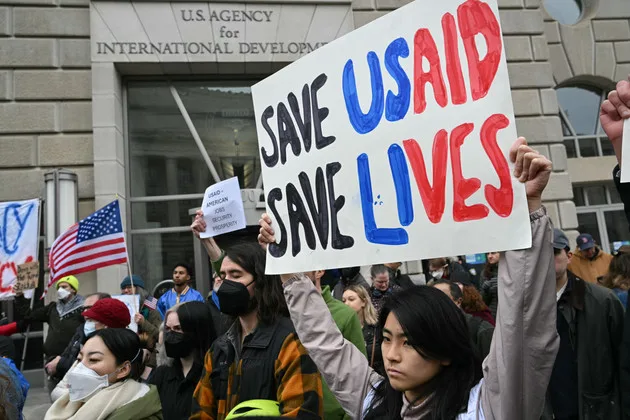The Trump administration plans to drastically reduce the U.S. government’s humanitarian agency, USAID, cutting its workforce from over 10,000 to fewer than 300, according to a report by The New York Times on Thursday.
The staff members who will remain are primarily specialists in health and humanitarian assistance, sources familiar with the plans told The Times, speaking on condition of anonymity.
In response to the cuts, two unions representing USAID employees filed a lawsuit on Thursday against President Trump and his administration. The suit seeks an injunction to block the mass firings, furloughs, and the dismantling of the agency. It argues that such actions cannot proceed without the prior approval of Congress.
The State Department did not immediately respond to a request for comment.
The report also revealed that about 800 contracts and awards managed by USAID are being canceled, further signaling the scale of the proposed changes. Similar reports have been carried by other major outlets, including The Washington Post.
This move follows an announcement by USAID on Tuesday that it was placing its entire workforce, both in the U.S. and abroad, on administrative leave as it began recalling employees from overseas assignments.
The drastic downsizing is part of a broader push by Trump and his business ally, Elon Musk, to shrink the U.S. government—a plan that has raised alarms in Washington, drawing sharp criticism from Democrats and human rights groups.
USAID, which operates in over 120 countries, is a key tool of U.S. foreign policy, funding health and humanitarian initiatives in some of the world’s most impoverished regions. It is also viewed as an essential instrument of soft power, especially in competition with global rivals like China, where Musk has significant business interests.
Musk has previously described USAID as “a viper’s nest of radical-left Marxists who hate America,” while Trump referred to the agency’s leadership last week as “a bunch of radical lunatics.”
The attack on the agency has led to an outcry from aid organizations, which report that the cuts have already resulted in the suspension of critical programs, including those focused on HIV prevention and treatment.


